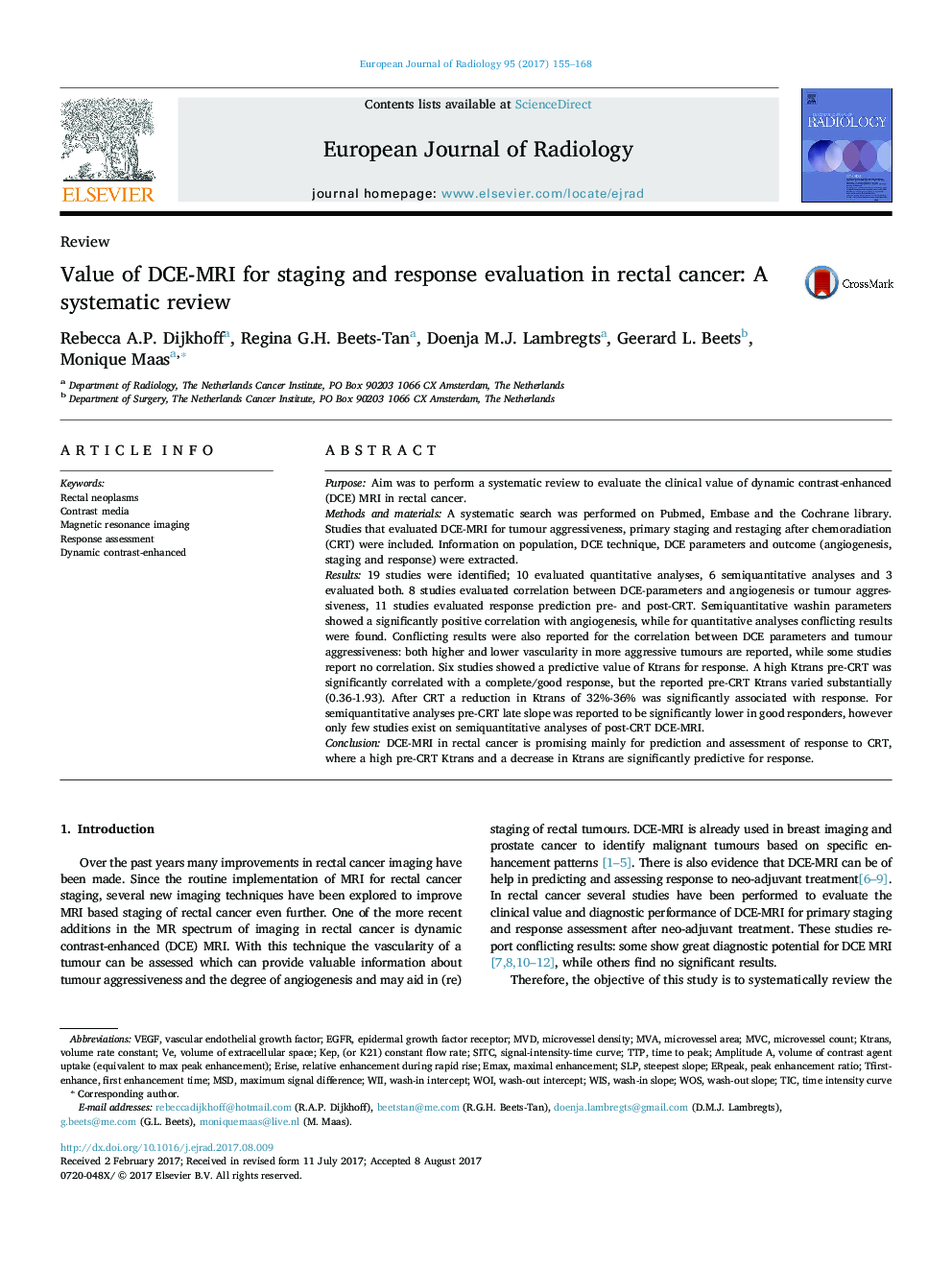| Article ID | Journal | Published Year | Pages | File Type |
|---|---|---|---|---|
| 5725995 | European Journal of Radiology | 2017 | 14 Pages |
â¢DCE-MRI has a value in the staging of rectal cancer.â¢Ktrans is the most investigated quantitative parameter.â¢Ktrans correlates with angiogenetic activity and tumour aggressiveness.â¢A high Ktrans before chemoradiation predicts response.â¢A large decrease in Ktrans during chemoradiation predicts response.
PurposeAim was to perform a systematic review to evaluate the clinical value of dynamic contrast-enhanced (DCE) MRI in rectal cancer.Methods and materialsA systematic search was performed on Pubmed, Embase and the Cochrane library. Studies that evaluated DCE-MRI for tumour aggressiveness, primary staging and restaging after chemoradiation (CRT) were included. Information on population, DCE technique, DCE parameters and outcome (angiogenesis, staging and response) were extracted.Results19 studies were identified; 10 evaluated quantitative analyses, 6 semiquantitative analyses and 3 evaluated both. 8 studies evaluated correlation between DCE-parameters and angiogenesis or tumour aggressiveness, 11 studies evaluated response prediction pre- and post-CRT. Semiquantitative washin parameters showed a significantly positive correlation with angiogenesis, while for quantitative analyses conflicting results were found. Conflicting results were also reported for the correlation between DCE parameters and tumour aggressiveness: both higher and lower vascularity in more aggressive tumours are reported, while some studies report no correlation. Six studies showed a predictive value of Ktrans for response. A high Ktrans pre-CRT was significantly correlated with a complete/good response, but the reported pre-CRT Ktrans varied substantially (0.36-1.93). After CRT a reduction in Ktrans of 32%-36% was significantly associated with response. For semiquantitative analyses pre-CRT late slope was reported to be significantly lower in good responders, however only few studies exist on semiquantitative analyses of post-CRT DCE-MRI.ConclusionDCE-MRI in rectal cancer is promising mainly for prediction and assessment of response to CRT, where a high pre-CRT Ktrans and a decrease in Ktrans are significantly predictive for response.
